Fewer Christians fleeing persecution in their native countries have found a safe harbor in the United States in the past half decade, according to a new report from a pair of Christian nonprofits, which cites the effects of the pandemic and the dismantling of U.S. refugee resettlement programs during the Trump administration.
The report, titled “Closed Doors,” found the number of Christians coming to the U.S. from countries named on a prominent persecution watchlist dropped from 32,248 in 2016 to 9,528 in 2022 — a decline of 70%.
The number of Christian refugees from Myanmar dropped from 7,634 in 2016 to 587 in 2022, while the number of Christian refugees from Iran dropped from 2,086 in 2016 to 112 in 2022. Christian refugees from Eritrea dropped from 1,639 in 2016 to 252 in 2022, while refugees from Iraq dropped from 1,524 to 93 during the same timeframe.
All four countries are among the 50 nations on the annual World Watch List published by Open Doors, an international Christian charity that tracks persecution. The new report was written by Open Doors and World Relief, an evangelical charity that resettles refugees.
“The tragic reality is that many areas of the world simply aren’t safe for Christians, and Christians fleeing persecution need a safe haven in the United States,” according to the report.
Your tax-deductible gift helps our journalists report the truth and hold Christian leaders and organizations accountable. Give a gift of $30 or more to The Roys Report this month, and you will receive a copy of “Baptistland: A Memoir of Abuse, Betrayal, and Transformation” by Christa Brown. To donate, click here.
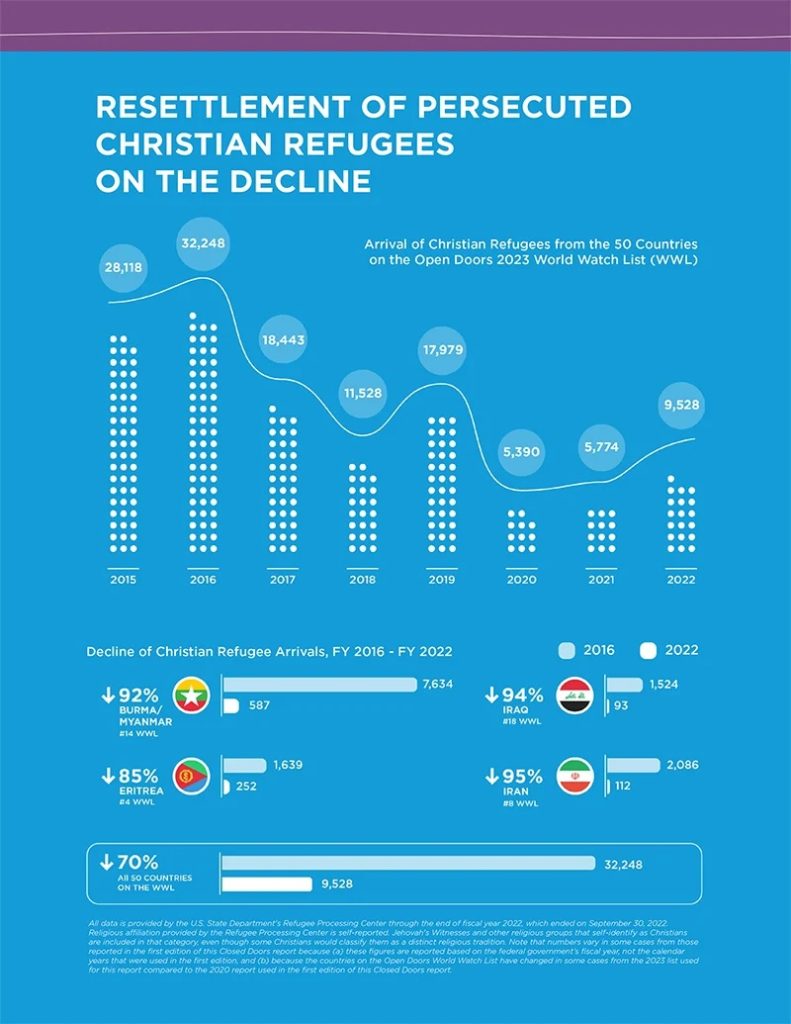
The decline in Christian refugees comes at a time when the persecution against Christians is on the rise, said Ryan Brown, CEO of Open Doors.
According to the Watch List released earlier this year, some 360 million Christians face what Open Doors calls “high levels of discrimination and persecution.” That’s up from 260 million reported in a 2020 edition of the “Closed Doors” report. Much of the increase has come in sub-Saharan Africa, he said, driven by political instability and internal conflict in countries like Nigeria.
“Tragically, that’s the area where we are seeing the most intense violence as it relates to persecution,” said Brown.
According to Brown, many Christians in countries where there is persecution want to stay there, often feeling called to minister in difficult situations. But some are forced to flee.
In 2016, according to the “Closed Doors” report, 32,248 refugees from countries on Open Doors’ World Watch were resettled in the United States. That number dropped to 11,528 in 2018 and then to 5,390 in 2020.
While persecution is on the rise, both the annual refugee ceiling set by the U.S. president each fall and the total number of refugees resettled yearly in the U.S. have dropped. In 2016, according to the “Closed Doors” report, about 97,000 refugees were resettled. That number declined to just under 23,000 in 2018. Canada, despite having a much smaller population, managed to resettle about 28,000 refugees that year.
“In the calendar year 2020, the U.S. resettled fewer than 10,000 refugees for the first time in the resettlement program’s history,” according to the report.
The lowering of the refugee ceiling began under President Trump, and the sudden drop, exacerbated by the COVID-19 pandemic, dismantled much of the infrastructure needed to resettle refugees, including the work done in the United States by a number of faith-based groups, including World Relief, Church World Service, and HIAS, the latter founded as the Hebrew Immigrant Aid Society.
In 2021, President Biden set the refugee ceiling at 15,000 — the lowest since the passage of the 1980 Refugee Act, which sets the parameters for the current refugee resettlement system. That ceiling was later raised to 65,000 after faith groups protested.
This past year, the ceiling was set at 125,000 — however, the U.S. only resettled about 60,000 refugees in fiscal year 2023, according to the “Closed Doors” report.
That shortfall is due in large part to the aftereffects of the pandemic, said Matt Soerens, vice president of advocacy and policy at World Relief. The screening process for refugees, which takes years, was shut down during the pandemic and was slow to restart.

World Relief, which has resettled just over 7,000 people during the past year, including refugees from Afghanistan and Iraqis with Special Immigrant Visas, and the other resettlement agencies closed down offices and laid off staff when the refugee resettlement program shut down. Restarting those offices and adding staff has taken time as the agencies rebuild their domestic infrastructure.
“We are expanding,” he said. “I wish I could have the confidence to expand even more, but it’s very expensive to raise the space and hire staff and then have to lay them all off three years later.”
Calling the resettling of 60,000 refugees a sign of progress, Soerens credits the Biden administration with helping the agencies to rebuild the overseas resettlement infrastructure, but added, “They didn’t start nearly as quickly as we would have liked them to.”
Part of the impetus for the “Closed Doors” report, he said, was to put pressure on the Biden administration to continue that progress.
Soerens said that he hopes in the future, the refugee resettlement program will be more stable. For years, he said, the program enjoyed bipartisan support and was seen as a source of pride for American leaders — and a sign that America was living up to its ideals.
“We’ve had a history of being a refuge for those fleeing persecution for any number of reasons, among them, religious persecution,” he said. “I think that we’re at risk of losing that.”
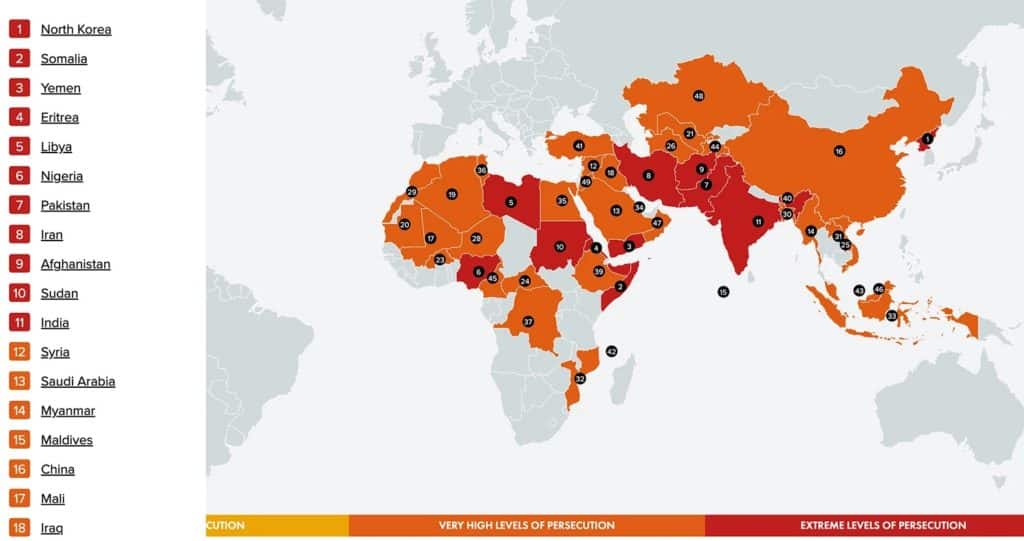
While the report focuses primarily on Christian refugees, resettlement groups also worry about those from minority faiths, including Jews and Yazidis, who have “largely been shut out of refugee resettlement in recent years,” according to the report.
“As Christians, we believe that all people have the right to religious freedom and that religious minorities of any sort — not just those who share our Christian faith — should be protected,” the report said.
Brown said that some of his fellow Christians may have lost sight of the importance of refugee resettlement, in part because of the current polarization over immigration and the surge of asylum seekers and migrants at the border.
They may not be aware that restricting refugees affects persecuted Christians, he said.
In the 1950s, when Open Doors was founded, the concern was mostly about religious persecution behind the Iron Curtain. The group’s late founder, Andrew van der Bijl, better known as Brother Andrew, spent years smuggling Bibles into Communist countries.
Today, said Brown, persecution continues under authoritarian regimes, but it also happens in countries where there’s internal conflict and strife. And while countries like China have experienced economic prosperity, he said, that prosperity hasn’t been accompanied by the expansion of human rights.
Brown hopes the report will lead Christians to pray and to assist refugees when they arrive in the United States. He also hopes they will support refugee resettlement programs.
“We’d love to see America take its place again on that global stage,” he said, “to be that beacon of freedom and religious liberty.”
 Bob Smietana is a national reporter for Religion News Service.
Bob Smietana is a national reporter for Religion News Service.






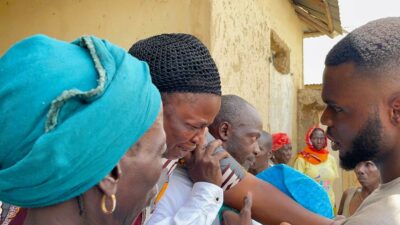

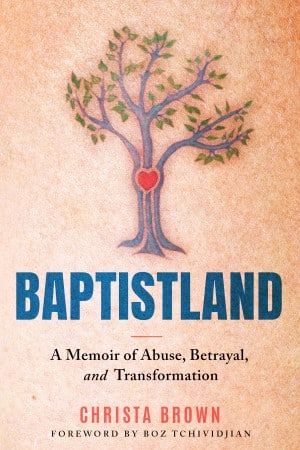
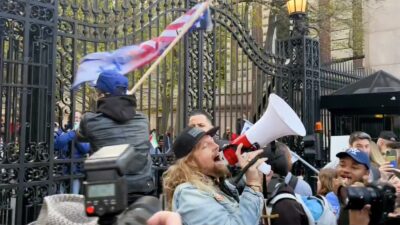
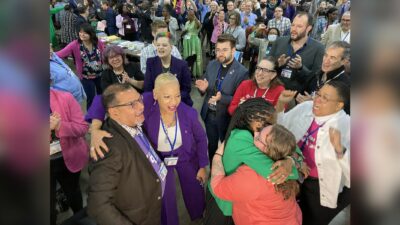
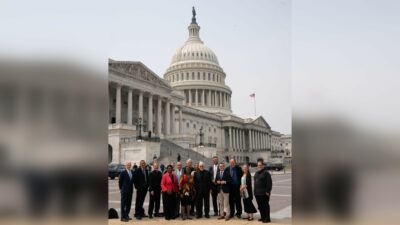









7 Responses
With the illegal invasion of our border, this is a travesty!
Many of those coming across our border are refugees That’s the point. We are so quick to yell “illegal invasion” at any and everyone coming across the border that we are missing how some of them are refugees.
Lev 19:33-34
33 “When a stranger sojourns with you in your land, you shall not do him wrong. 34 You shall treat the stranger who sojourns with you as the native among you, and you shall love him as yourself, for you were strangers in the land of Egypt: I am the Lord your God.
Matt 25:35
For I was hungry and you gave me food, I was thirsty and you gave me drink, I was a stranger and you welcomed me,
Ex 22:21
21 “You shall not wrong a sojourner or oppress him, for you were sojourners in the land of Egypt.
Deut 27:19
19 “‘Cursed be anyone who perverts the justice due to the sojourner, the fatherless, and the widow.’ And all the people shall say, ‘Amen.’
Mal 3:5
“Then I will draw near to you for judgment. I will be a swift witness against the sorcerers, against the adulterers, against those who swear falsely, against those who oppress the hired worker in his wages, the widow and the fatherless, against those who thrust aside the sojourner, and do not fear me, says the Lord of hosts.
Zech 7:9
“Thus says the Lord of hosts, Render true judgments, show kindness and mercy to one another, do not oppress the widow, the fatherless, the sojourner, or the poor, and let none of you devise evil against another in your heart.”
There are many more passages like these. Referring to immigrants of any kind as “invaders” is profoundly contrary to the heart of God.
okay mark let’s start with the basics. If that’s all true and functional then why not start by all the churches and members take in a refugee. Why because we can’t be all to everyone. I am so tired of people using scripture about how we must take in all comers. How about the rest of the world. We will, like western Europe become a third world nation soon. No assimilation no traditional values no education. Using scripture is very naive in 2023. again, how many have you taken in? We have an estimated 600k homeless and many are vets. we have taken in almost 2 million invaders since 2020. We have all the money for them and the Ukraine but nothing for our citizens. So where is your heart? I thought so.
If you don’t care what the Bible says why are you on this site?
“Invaders”? Really?
And God is no respecter of persons. Jew, Greek, Black, white…He calls us to love across all of those lines. We are not to determine who “deserves” support based on nationality or citizenship. The only citizenship that matters is kingdom citizenship.
Give thanks to God you are an American. You had no control over that and all the privileges that come with it. You could have easily been born elsewhere, with other people judging you (for where you were born, which you had NOTHING to do with) and talking about what you do or do not “deserve” too.
This is a heartbreaking story, but like so many similar stories it is not a surprise.
Lifeway’s own poling found that among white evangelicals the TOP priority was immigration and they didn’t vote for Trump by 80% to have him make it easier to bring refugees into the country.
Christians of good conscience can disagree about immigration methods, limits and procedures, but this article makes a solid case that anti-immigration policies are not good for persecuted Christians.